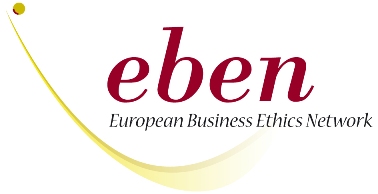9 de noviembre de 2017 – “WINNING a Nobel prize changes your life,” said Jean Tirole, a French economist, from experience. When his work on competition policy and how to adapt regulation for specific industries earned him the gong in 2014, he could have succumbed to “Nobel prize syndrome”, the tendency to opine on all economic matters regardless of expertise. His book “Economics for the Common Good”, published in 2016 and just released in English, attempts something much bolder. He tries to rescue economists’ reputation.
His profession has been attacked for failing to predict the financial crisis, for pushing competition and markets above all else and for ignoring questions of morality. One academic economist will befuddle you with two contradictory opinions, while another will attack you with impenetrable algebra. No wonder technocrats are losing out to populists.
Some of this criticism is warranted, Mr Tirole accepts. Leading economists prefer to create knowledge rather than disseminate it, and they communicate with each other in a language that can be hard to understand. Although mathematical models add clarity and rigour (and Mr Tirole is a heavy user in his own research), they can constrain which questions are asked, and be mistaken as the goal of research rather than the means.
In some cases, though, critics of economists ask too much of them. Although economists did underestimate the importance of financial regulation in the run-up to the crisis, and oversold the benefits of whizzy new instruments, blaming them for failing to spot something that even financial supervisors had only partial knowledge of seems unfair. Crises often come when an unforeseen but otherwise survivable investor panic becomes self-fulfilling. Knowing when the world will flit between states is impossible.
Mr Tirole spends much of his book reminding readers of what economics is for. It is supposed to serve society, and to offer rigour where gut instincts go wrong. Debates on whether to weaken protection for permanent employees, for example, pit managers against workers who want security. The economist is there to point out the victim hidden by this dichotomy: the person who has no job, or only a short-term contract, because companies are afraid to hire hard-to-fire staff on full contracts.
Economics is perfectly capable of incorporating questions of morality, says Mr Tirole. It simply imposes structure on debate where otherwise indignation would rule. It might make sense to ban some markets, like dwarf-tossing, he says: its existence diminishes the dignity of an entire group. But a market in organs or blood, for example, should not be rejected on the basis of instinctive moral repugnance alone. Policymakers should consider whether payment would raise the supply of donated blood or kidneys, improving or even saving lives. (It might not, if the motivation of money makes generous people afraid of looking greedy.) Whatever the answer, policymakers should make decisions from “behind the veil of ignorance”: without knowing whether any one person, including the policymakers themselves, would be a winner or loser from a particular policy, which society would they choose?
Mr Tirole applies this type of reasoning to topics ranging from carbon taxes to industrial policy, from competition to the digital economy. He presents economists as detectives, sniffing out abuse of market power and identifying trade-offs where populists make empty promises. His analysis is laden with French examples of ill-advised attempts to defy the constraints that those in his discipline delight in pointing out. When in 1996 the French government blocked new large stores in an effort to restrain the power of supermarket chains, share prices of existing ones rose. The new laws inadvertently worsened the problem by restricting competition.
He also depicts economists as ill-equipped to deal with the dirty reality of politics. To those who might be catapulted into sudden stardom as he was, he warns that academic economists will be quickly put into political pigeonholes, and their arguments celebrated or dismissed according to whether the recipient favours that pigeonhole. Though populists revel in simplicity, his aim is to make economics context-specific and point out its complexities. This is his strength, but his discipline’s limitation. He is economists’ defender, but not their saviour.
Publicado en The Economist

